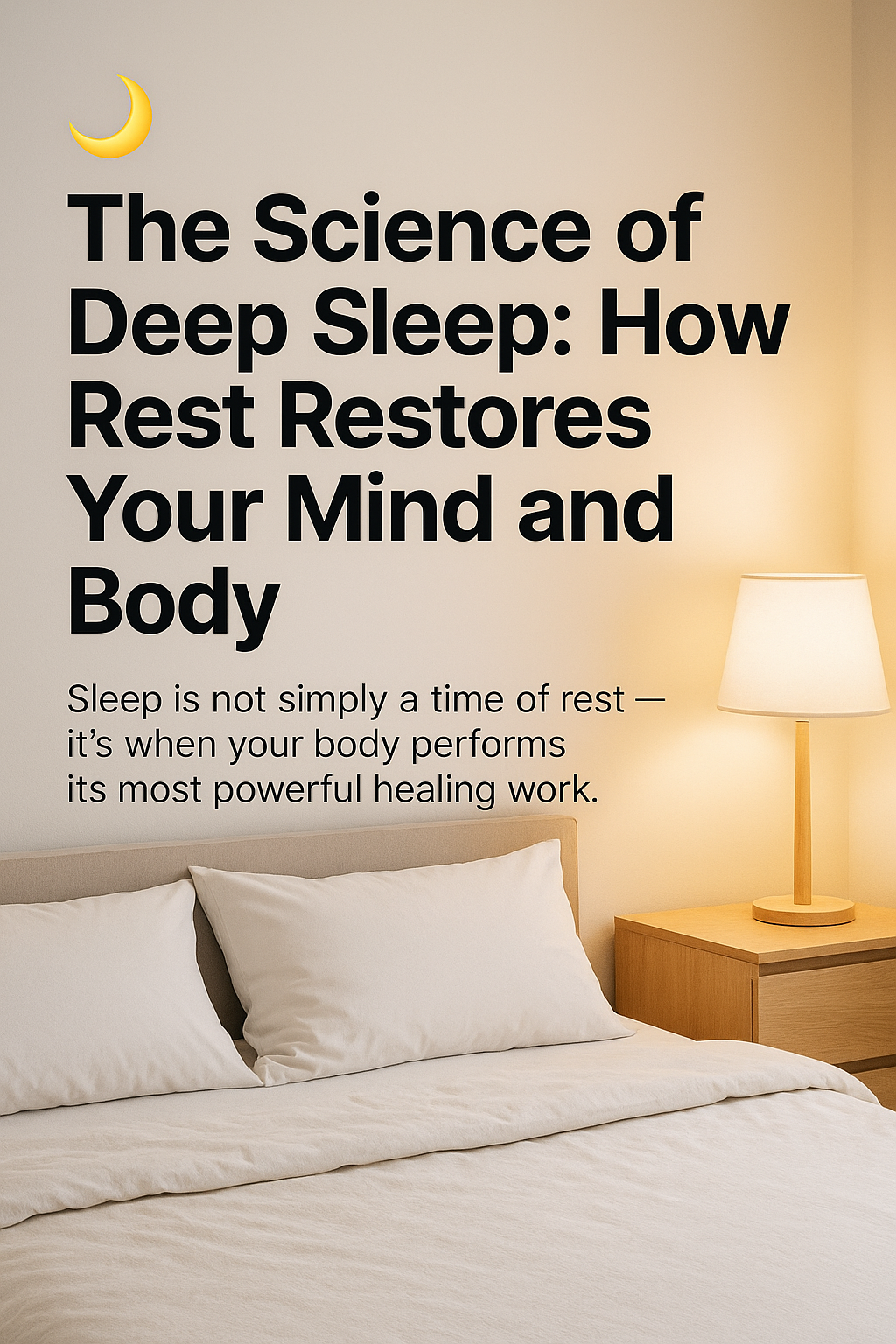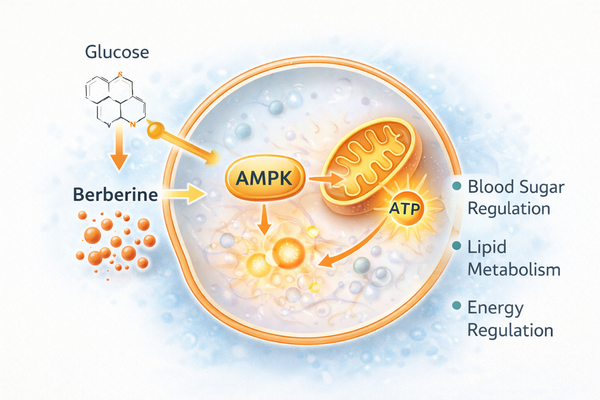The Science of Deep Sleep: How Rest Restores Your Mind and Body

Sleep is not simply a time of rest — it’s when your body performs its most powerful healing work.
Every night, your brain and body enter a state of repair, cleaning out toxins, balancing hormones, and rebuilding strength.
When you consistently lose sleep, you don’t just feel tired — you interrupt your body’s core repair system, which affects your immunity, focus, and even longevity.
🧬 1. What Happens During Deep Sleep
Deep sleep, also known as slow-wave sleep (SWS), is when your body goes into full recovery mode.
During this phase:
- 🧠 The brain flushes out waste proteins through the glymphatic system
- 💪 Muscles repair microscopic damage from daily activity
- ❤️ Heart rate and blood pressure drop to rejuvenate the cardiovascular system
- 🔄 Growth hormone surges, triggering tissue regeneration
According to research from Harvard Medical School, deep sleep is directly linked to better memory, metabolism, and emotional regulation.
🌸 2. How Sleep Strengthens the Immune System
When you sleep, your immune system produces cytokines — proteins that help fight infection and reduce inflammation.
Just one night of poor sleep can reduce your immune defenses by up to 30%, according to a study in Sleep Journal.
That’s why chronic insomnia often leads to frequent illness, slower healing, and fatigue.
Sleep is your body’s most natural — and free — form of medicine.
🌅 3. Evening Habits That Improve Sleep Quality
- Power down devices at least one hour before bed — blue light delays melatonin release.
- Keep a cool room (around 19°C–21°C) — your body falls asleep faster in cooler environments.
- Avoid caffeine after 2 p.m. — its half-life can linger for up to 8 hours.
- Develop a ritual — reading, stretching, or deep breathing cues your brain it’s time to rest.
- Maintain a schedule — sleeping and waking at the same time trains your circadian rhythm.
Consistency is more powerful than sleeping longer hours only once in a while.
🌼 4. The Mind–Body Connection
Sleep and mental health are deeply intertwined.
When you’re anxious, your sleep quality drops — and when you’re sleep-deprived, your emotional control weakens.
This cycle can only be broken by giving your brain time to slow down before rest.
Practices like meditation, journaling, or even gentle music before bed can help calm the mind and activate the parasympathetic nervous system, allowing deeper rest.
✨ Final Thoughts
True health isn’t achieved through effort alone — it’s built on rest, balance, and recovery.
When you honor your sleep, you allow your body to do what it’s designed to do: heal itself.
Each night is a new chance for renewal — physically, mentally, and emotionally.
So tonight, turn off the noise. Breathe. Let your body remember how to rest.



